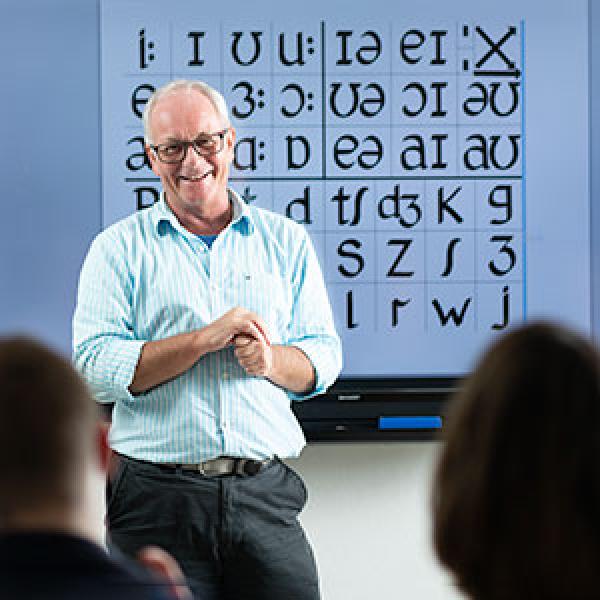7th April 2020
How often have you heard a learner say, ‘I know this’ or ‘we’ve done it before’? I can sometimes raise a smile when a learner says it, but when a teacher says, ‘they know that’ or ‘they’ve done that’, I can only stop and ask myself, ‘do they?’ or ‘have they?’
When learners and teachers say they ‘know it’ or have ‘done it?’ They likely mean they’ve come across it before in some way, the same context, in a restaurant maybe …, similar type of lesson focus … listening … and OMG they’ve seen the text before! From the learners’ perspective we might put this down to learner expectations (they always want something completely new), but when it’s the teachers … they are letting go of so many opportunities.
Can any of you honestly say you’ve never watched something, read something or listened to something more than once …? Can you also say that when you’ve watched, read or listened to something again you haven’t got something more out of it …? So, where’s the case for not ‘doing something again’? Alternatively, where’s the case for ‘doing’ something again?
When I very recently heard someone say, ‘they’ve done it before’, Jim Scrivener’s Learning Teaching came to mind and I remembered a very relevant section (pp205-208). I went back to it and read it … As Scrivener states, it’s unlikely that anything will be ‘fully explored and used, even as the student reaches advanced levels’. Taking this further, Scrivener clearly identifies new things learners can do with vocabulary they ‘know’ and learn how ‘old’ words are used in ‘new’ ways.
In pp 206-207 Scrivener identifies no less than 32 ways in which an allegedly ‘known’ element of language can be developed. If we take the time to think about it, we can introduce learners to something new, even though they think they ‘know’ it. Here’s a few examples that Scrivener gives:
| You can know... | Notes |
| Collocation fields | The range of words an item collates with |
| Restrictions on meaning | Things an item cannot be used for |
| Connotation | The association and ‘feelings’ that seem to attach to words |
| Gramatically related forms | Gerund forms |
Adapted from Scrivener, 2011, Learning Teaching (pp 206-207)
Its beginning to look more likely that learners are familiar with something, but don’t actually ‘know it’ any more than superficially. As with most other things in life as well as learning, there can be a tendency for things to become generalised and perhaps in varying degrees ‘foggy’. The language classroom isn’t an alternate universe where the rules of everyday life don’t apply.
The more we look into this, the more it could open a can of worms, but let’s for the time being keep it simple. As far as I’m concerned, it’s more likely than not that if a learner says ‘we know this’ or ‘we’ve done this’, they don’t or they haven’t. we could put this down to learners’ expectations, perhaps they want something completely new every time; a tall order for the teacher and not necessarily in the interests of the learners’ language development. It might be a delicate area to explore and for another occasion, but learners are after all there for a reason and it’s for us as teachers to help them with this. One difficulty that Scrivener identifies from the teachers’ perspective is that ‘many teachers assume that the real work of teachers is introducing learners to the meanings of new lexical items …’ As we’re beginning to see there’s more to it than this and recycling, whether it be vocabulary, grammar, a listening or reading text can and should be a regular practice.
Recycling and review is an important part of the learning process and some would say critical (Mark Koprowski in his itesl journal article) if there is any chance of language becoming readily accessible in the long-term memory. Review and recycling are important aspects of consolidating learning and if we look, even those course books we use do this and as teachers we need to look for opportunities to recycle, perhaps by varying the skills work our learners do with the language; this will at least help learners extend their range of use of new language or ideas e.g. learners might have listened in an early part of a lesson and the language identified might then be applied to a mingling activity where the language can be recycled. Nothing new there then you might think, we do this all the time … precisely. Whether we or the learners like it or not, it already happens.
I recently read an article by Dave Willis that highlighted the importance of recycling of reading texts (founded on a task based approach) and he rightly in my opinion suggests it’s very important for learners to make the most of texts they have come across and not simply put them aside and forget them. Many texts are generative enough for them to be recycled several times and even those that aren’t that generative have potential.
There are a variety of things that learners can do with a recycled text and with a little thought I’m sure you can come up with some good ideas, but as a start you might have your learners re-read a text and then set some questions for them to answer without looking at the text, pooling ideas as pairs, then joining groups or other pairs and eventually have them mingle as a whole class. This goes along with what Willis says about the importance of recall and learning language mainly from ‘the language we process for meaning’.
When learners and even other teachers say ‘we’ve/they’ve done that’, or ‘we/they’ know that’, perhaps we can look at it from a different perspective. They might be familiar with some language or a text, but from what Scrivener says, we need to question this and look at extending their knowledge or ability. Considering this and Willis’ idea of recycling language/texts facilitating processing language to the benefit of our learners’ language development, is there really any reason to avoid recycling?
References:
Willis, D, Willis, J, 2007, Doing Task-based Learning. Oxford: Oxford University Press. (see Chapter 3 for ideas)
http://iteslj.org/Techniques/Koprowski-RecylingVocabulary.html
Scrivener, J, 2011, Learning Teaching. London; MacMillan Education
Considering a Trinity CertTESOL qualification? The introductory module of the CertTESOL course is now available as a standalone fully online course – the TESOL Starter course.



